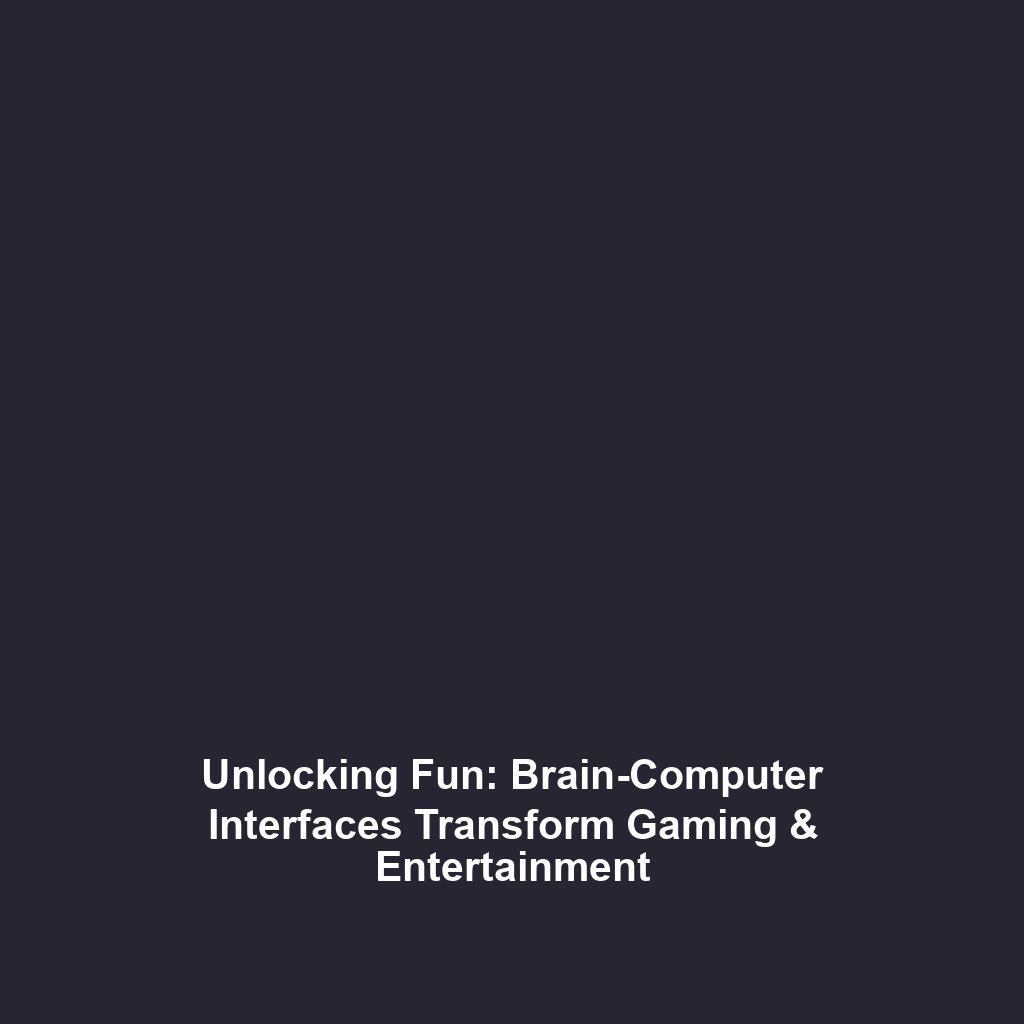Gaming and Entertainment in Brain-Computer Interfaces
The intersection of Gaming and Entertainment with Brain-Computer Interfaces (BCIs) is transforming the way we interact with technology and entertainment. BCIs allow for direct communication between the human brain and external devices, thereby revolutionizing the gaming experience and expanding entertainment possibilities. With the advent of BCIs, users can experience immersive environments that respond to their thoughts and emotions, ultimately enhancing their engagement and satisfaction. This article delves into the major concepts, applications, challenges, and future innovations of Gaming and Entertainment within the realm of Brain-Computer Interfaces.
Key Concepts of Gaming and Entertainment
To understand how Gaming and Entertainment fit into the category of Brain-Computer Interfaces, it’s essential to discuss several key concepts:
- Real-Time Interaction: BCIs enable real-time responses to users’ thoughts, allowing gamers to control avatars or environments simply through their neural activity.
- Immersive Experiences: By utilizing BCIs, users can enter fully immersive games where their feelings and cognitive states directly influence gameplay.
- Feedback Mechanisms: Incorporating feedback systems, BCIs can adapt gaming challenges based on the player’s emotional responses, creating a personalized entertainment experience.
Applications and Real-World Uses
The applications of Gaming and Entertainment within the context of Brain-Computer Interfaces are vast and varied. Here are some significant examples:
- Therapeutic Gaming: BCIs are employed in therapeutic settings, where patients can play games that help in rehabilitation or cognitive therapy, illustrating how gaming is used in healthcare.
- Enhanced Gaming Experience: BCIs are utilized by game developers to create games that adapt in real-time to a player’s mental state, showcasing applications of BCIs in entertainment.
- Social Connectivity: Multiplayer BCIs can facilitate new forms of social interaction in online gaming, allowing players to engage on a more profound level through shared thoughts and emotions.
Current Challenges
While the integration of Gaming and Entertainment with Brain-Computer Interfaces presents exciting possibilities, there are also several challenges:
- • Technical Limitations: Current BCI technology is often limited in its accuracy and reliability, leading to inconsistent gaming experiences.
- • Ethical Concerns: The use of BCIs raises ethical issues related to privacy and consent, especially concerning data collected from users’ brain activity.
- • Accessibility: High costs and specialized equipment can limit access to BCI technologies for the average consumer.
Future Research and Innovations
Looking ahead, several innovations and research areas hold promise for the future of Gaming and Entertainment as they relate to Brain-Computer Interfaces:
- Advancements in Neural Engineering: Breakthroughs in neural signal decoding may allow for more intuitive and seamless interactions between users and gaming systems.
- Next-Generation Gaming Platforms: Future platforms may fully integrate BCIs, offering advanced features such as thought-driven gameplay and emotion-responsive narratives.
- Exploratory Research: Ongoing studies are exploring the potential of BCIs in enhancing user experiences in virtual and augmented reality environments.
Conclusion
In conclusion, the integration of Gaming and Entertainment with Brain-Computer Interfaces represents a significant evolution in interactive technology. Understanding the principles, applications, challenges, and future research in this field is crucial as we move toward a more immersive entertainment landscape. To learn more about the exciting developments in Brain-Computer Interfaces, visit our related articles on neurotechnology and interactive gaming.
